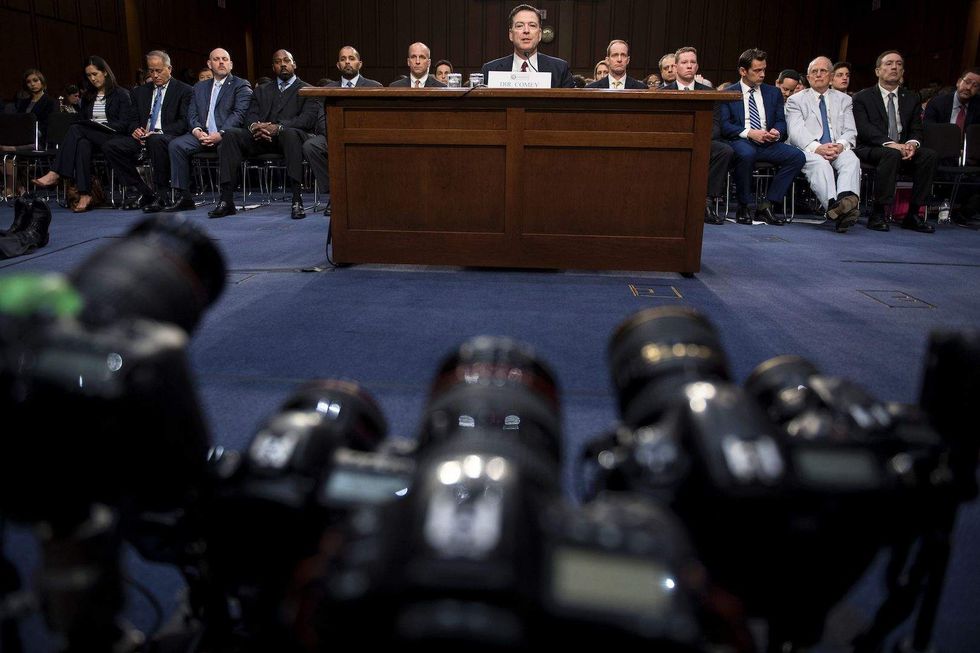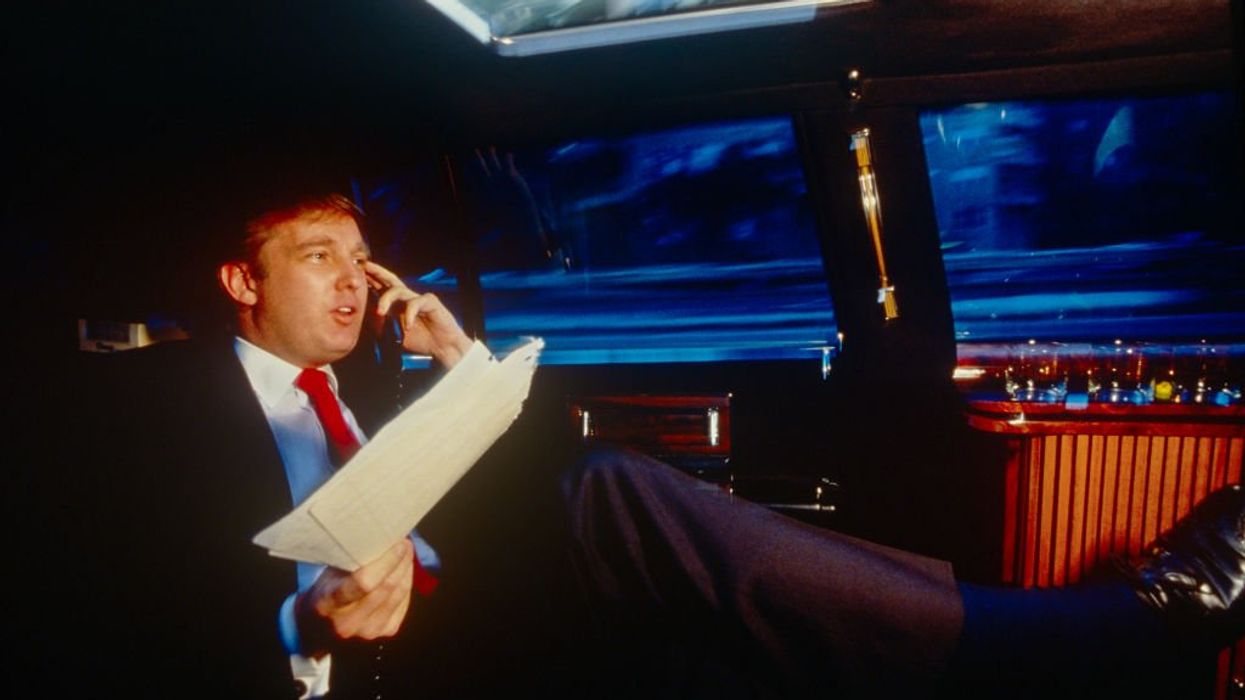Fired FBI Director James Comey testified Thursday in front of the Senate Intelligence Committee on Capitol Hill, shedding light on several key questions regarding President Donald Trump and the investigation into possible collusion with Russia, as well as the investigation into possible false statements made by former national security adviser Ret. Gen. Michael Flynn, and Comey's own termination as FBI director.
Here are some of the key takeaways we learned from Comey's testimony in the open hearing:
1) Trump was telling the truth when he said Comey told him he was not under investigation.
Even in his prepared statements released Wednesday, Comey made it explicitly clear that he did tell Trump three times that he was not personally under investigation, noting the dates of Jan. 6, Jan. 27, and March 30. Comey said that his decision to tell Trump was not made lightly and discussed with FBI leaders before his initial private conversation with Trump, which took place Jan. 6. Comey also explicitly said that he gave Trump this information without any prompting.
"We did not have an open counter-intelligence case on him," Comey said.
The media had reported in recent days that Comey was expected to state that his discussions with Trump on this subject were more "nuanced" than that, and some reports even quoted friends of Comey who said that Comey would "never" have told Trump he was not under investigation, but according to Comey's own words Thursday, Trump was right and the media was wrong.
2) Comey developed an immediate distrust for Trump from almost day one
When asked why he kept records of every conversation he had with Trump, Comey testified under oath that he did not trust Trump.
"I think the circumstances, the subject matter, and the person I was interacting with," Comey responded, elaborating that he was talking to the president-elect and felt the matters were worth documenting, the fact that he was discussing FBI investigation, and "the nature of the person."
"I was honestly concerned that he might lie about the nature of our meeting, and so I thought it really important to document it," Comey said. "I knew there might come a day when I would need a record of what had happened, not just to defend myself, but to defend the FBI and our integrity as an institution and the independence of our investigative function." Comey later said that he made a personal reading of Trump that judged him to be a not honest person.
He also admitted during his testimony that he wrote his memos in a way that they could not be labeled as classified, and then leaked his own memo to a friend and professor at Columbia University, hoping it would spark an independent investigation of the matter.
"My judgment was I need to get that out into the public square," he said. Comey said that by getting this information into the public, he hoped to spark and independent investigation, an indication of how deep his personal distrust of Trump had grown.
Comey also indicated in his testimony that he believed Trump's stated reason for firing him was a pretext. "There was an explanation," Comey said. "I just don't buy it."
3) Comey was never explicitly told to drop the Flynn investigation
Just as top national security advisers for the White House told the Senate Intelligence Committee on Wednesday, Comey testified on Thursday that he was never explicitly told to drop the investigation into former national security adviser Michael Flynn.
"I hope you can see your way clear to letting this go, to letting Flynn go. He is a good guy. I hope you can let this go," Comey alleged Trump told him.
"I had understood the president to be requesting that we drop any investigation of Flynn in connection with false statements about his conversations with the Russian ambassador in December. I did not understand the president to be talking about the broader investigation into Russia or possible links to his campaign," Comey's statement said.
Comey never testified that Trump demanded or in any way pressured him to drop the investigation into Flynn. Comey was clear that he interpreted Trump's remark that he hoped Comey could "let this go" as something resembling a command, especially given the context, but admitted that Trump never uttered words that could reasonably be interpreted as a command.
4) Trump does not understand the institutional norms of the Justice Department
It is clear from Comey's testimony that both he and other Justice Department officials were horrified by several actions taken by Trump during the course of the investigation. Comey seemed especially bothered that Trump asked to speak with him alone, without his direct supervisor (Attorney General Jeff Sessions) present.
Comey said that he raised a concern about this with Sessions. Describing Sessions' reaction, Comey said, "Maybe I'm projecting," but that Sessions appeared to him to signal an attitude of "what can you do?"
According to Comey, others who were present in the Oval Office when Trump asked to speak with Comey alone also appeared visibly uncomfortable with Trump's request, and for good reason: it was definitely a breach with departmental norms within the Department of Justice, as was Trump's request that Comey "let it go" with respect to the Flynn investigation.
The same thing might be said about Trump's demand that Comey promise him "loyalty." There is obviously nothing illegal about such a request, but it clearly rankled the man who was the head of a department that has always prided itself on its independence.
However, Comey was likewise clear that Trump did not continue to pressure him to drop the investigation after this one meeting, and that afterward, when Comey asked him to follow proper protocols on requests, Trump complied. The overall picture seems to have been that Trump offended Comey and other Justice Department officials by simply not knowing about their institutional norms of independence, not through any active malice or desire to criminal impede an investigation.
This is one area where Trump's unfamiliarity with Washington may well have caused a controversy that a president who was more of an "insider" would have handled without creating a fuss.




